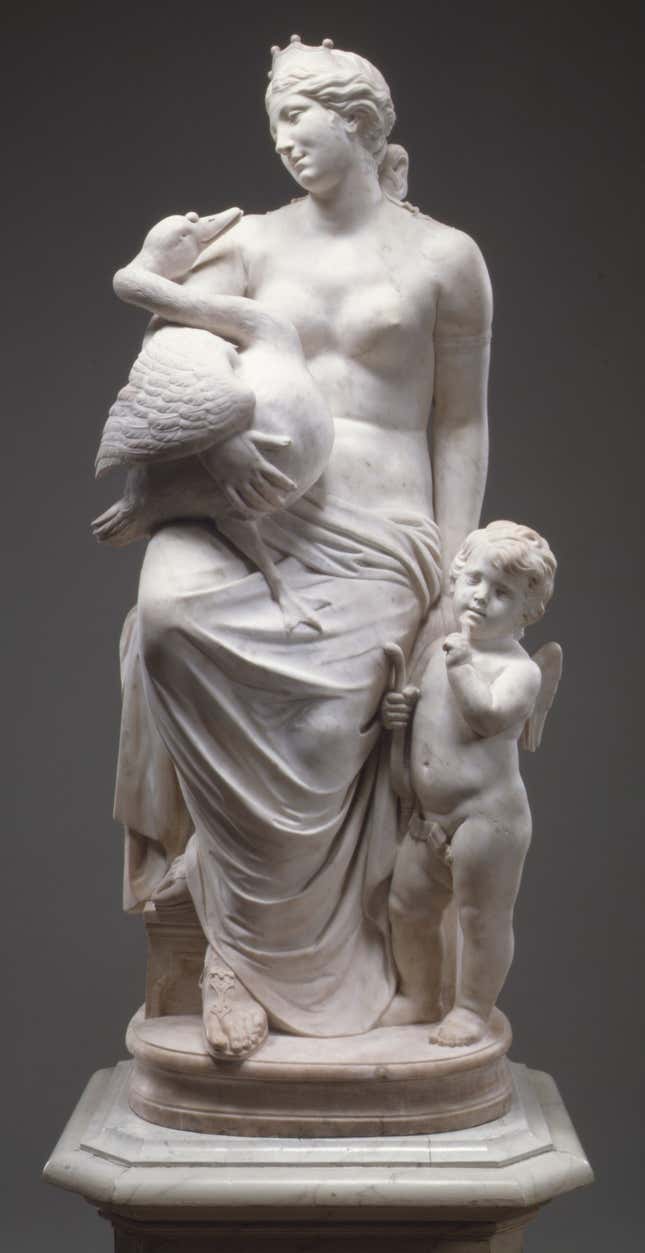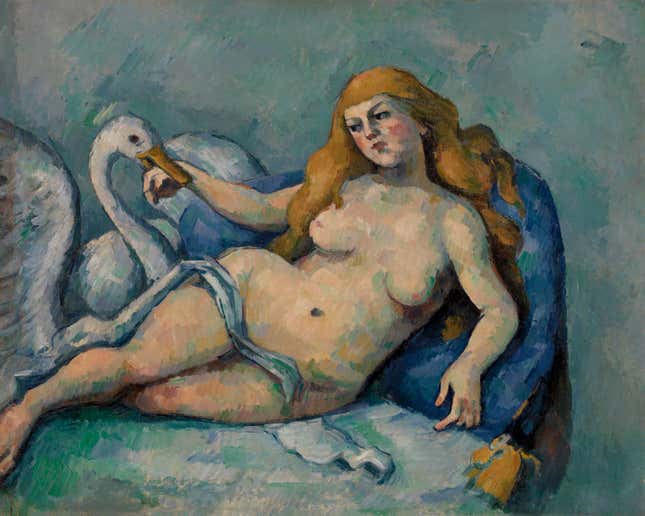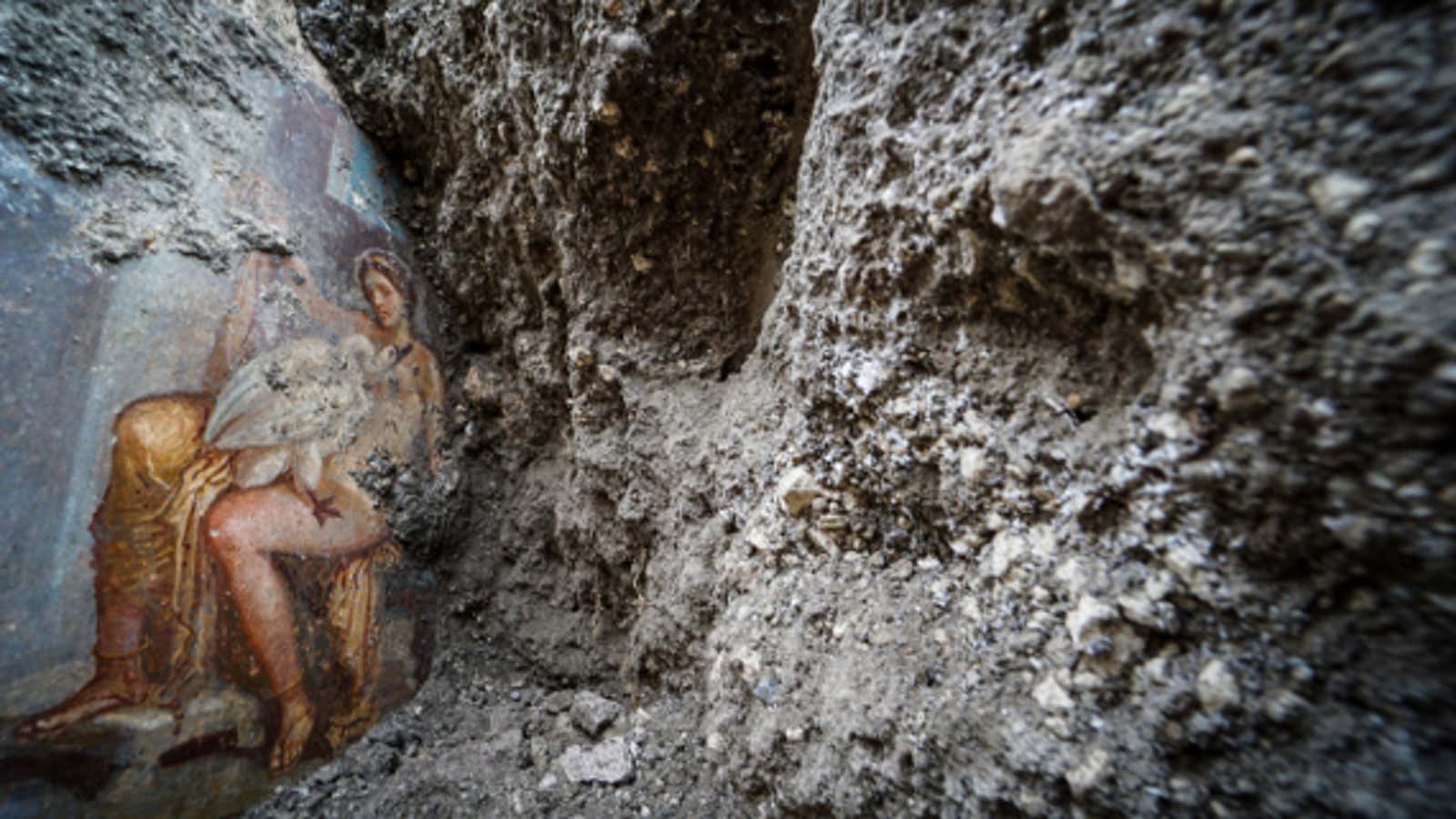A well-preserved ancient fresco depicting the myth of Leda and the Swan has been uncovered in the Regio V area of the Pompeii archeological site in Italy. The fresco was found in what appears to be a bedroom, beneath a thick layer of volcanic ash.
In initial headlines telling of the discovery, several outlets omitted a fundamental aspect of the mythological scene: that the sex it depicts is a rape. The fresco is described as an “erotic scene” by the BBC, a “sensual fresco” by the Associated Press, and “sensual bedroom art” by The Guardian. “Racy” and “Swan sex scene” were among the other phrases used in headlines.
The Greek myth in which the Spartan queen Leda is seduced and raped by the Greek god Zeus (Jupiter in Roman mythology) while he is in swan form has been a frequent subject of artistic and literary interpretation. It was referenced by the likes of Homer, Virgil, and Ovid, in versions that vary in their details. In some versions, Leda is raped by Zeus: W.B. Yeats’ famous poetic retelling of the myth tells the story from Leda’s perspective, as a violent and forceful assault. But many well-known artistic depictions, like the Pompeian fresco, portray the assault as a romantic conquest or consensual act.
Renaissance artists often show Leda welcoming the swan into her lap, sometimes accompanied by a voyeuristic Cupid:

Even if artists depict the story as one of assault, the rape is not always understood as an ignoble act. Mythologies from around the world are rife with examples of assaults framed as amorous conquests, and in cases when the rapist is a god, as an honor for the victim. Leda, for instance, is canonized for conceiving several legendary mythological figures following her coupling with Zeus, including Helen, whose own abduction brought about the Trojan War.
Jia Tolentino reflected on the idea of rape as romantic conquest in a recent piece for the New Yorker called “How a Woman Becomes a Lake.” In it, she refers back to Ovid’s story of the nymph Arethusa, who describes her unwilling transformation into a spring as the river god Alpheus pursues and rapes her after seeing her bathing in a stream:
“Where are you going in such a hurry, Arethusa?” he asked as she ran from him, “He kept on coming; naked, so he thought / I was readier for the taking. So I fled.” She keeps running while he follows, frightened at “the way his labored breathing / Blew on the back of my hair.”

Tolentino recalls how she underlined the part where Arethusa is transformed into a lake, thinking it beautiful (“He laid aside his human shape, became / A river again, a watery shape, to join me”). Although the story is ultimately one of unwanted pursuit and confinement, at 19, without the context of assault and the language to describe it, Tolentino notes that “a story of conquest could still sound like a story of love.”
The resurfacing of the Leda myth would seem a good opportunity to take what we’ve learned in the past year—a time when sexual assault has been at the forefront of our national discourse—and revisit it with more nuance.
